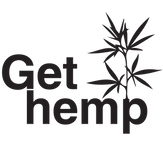
How CBD Can Enhance Your Workout Recovery
The pursuit of fitness is a journey that involves pushing your body to its limits, only to rebuild and become stronger. However, this process can often lead to soreness and fatigue, making recovery a crucial aspect of any workout regimen. While there are many recovery strategies available, one that has been gaining traction in the fitness community is the use of CBD (cannabidiol). Known for its anti-swelling and calming properties, CBD has shown promise in helping athletes and fitness enthusiasts recover more effectively from their workouts. This article explores how CBD can enhance workout recovery, allowing you to get back to your routine faster and with greater ease.
Understanding CBD: A Brief Overview
CBD is a non-psychoactive compound found in the cannabis plant, meaning it does not produce the "high" associated with THC (tetrahydrocannabinol). Instead, CBD interacts with the body's endocannabinoid system (ECS), which plays a key role in regulating a variety of physiological processes, including pain sensation, mood, body defense response, and swelling. By influencing the ECS, CBD has the potential to impact these processes in a way that can be beneficial for recovery after intense physical activity.
The Importance of Recovery in Fitness
Before diving into how CBD can aid in recovery, it’s important to understand why recovery is essential in the first place. When you exercise, especially at high intensity, your muscles undergo tiny tears that need to heal and rebuild. This process of healing is what ultimately leads to muscle growth and improved fitness. However, the post-exercise recovery period can be accompanied by muscle soreness and stiffness which can hinder your ability to train effectively in subsequent sessions.
Proper recovery allows your muscles to repair, reduces the risk of injury, and ensures that you can continue to progress in your fitness journey. Recovery can involve various practices such as rest, proper nutrition, hydration, stretching, and in some cases, the use of supplements or therapeutic aids like CBD.
How CBD Can Enhance Workout Recovery
CBD’s potential benefits for workout recovery stem from its interaction with the endocannabinoid system and other mechanisms within the body. Here’s how CBD can play a role in enhancing your post-workout recovery:
1. Reduction of Swelling and Muscle Soreness
One of the most significant ways CBD can aid in recovery is through its anti-swelling properties. After a strenuous workout, swelling is a natural response as your muscles repair themselves. However, excessive swelling can lead to prolonged soreness and delayed recovery.
CBD has been shown to reduce swelling by interacting with cannabinoid receptors in the natural body defenses. By mitigating the swelling response, CBD can help decrease muscle soreness (often referred to as delayed onset muscle soreness or DOMS), allowing for quicker recovery and a faster return to your workout routine.
2. Strain Relief
Post-workout strain is common, whether it’s muscle aches or joint discomfort. While traditional strain relievers are commonly used, they can have side effects, especially with long-term use. CBD offers a natural alternative for relief without the risk of adverse side effects.
Studies have suggested that CBD can influence strain pathways in the body, reducing the perception of muscle aches. This can be particularly beneficial for athletes dealing with chronic pain or those recovering from injuries, as it provides relief without impairing cognitive function or causing dependency.
3. Improved Sleep Quality
Sleep is a critical component of recovery. During deep sleep, your body goes into repair mode, healing tissues, producing essential hormones, and replenishing energy stores. Poor sleep can hinder this recovery process, leaving you feeling fatigued and sore.
CBD has been shown to improve sleep quality by addressing factors that disrupt sleep, such as worry and strain. By promoting relaxation and reducing these disturbances, CBD can help ensure you get the restorative sleep needed for optimal recovery.
4. Reduction of Fatigue
Physical recovery is not just about healing the body; it’s also about managing mental and emotional stress. The stress of intense training, competition, or even everyday life can negatively impact recovery by increasing cortisol levels, a hormone that can contribute to muscle breakdown and hinder recovery.
By reducing worry, CBD may help keep cortisol levels in check, allowing for a more balanced recovery process and better overall well-being.
5. Enhanced Muscle Relaxation
Post-exercise muscle tension is a common issue that can lead to stiffness and discomfort. CBD can act as a muscle relaxant, helping to alleviate muscle tension and promote relaxation. This can be particularly useful after intense strength training sessions where muscle tightness is prevalent.
CBD’s muscle-relaxing properties are believed to be related to its ability to modulate the release of neurotransmitters that influence muscle contraction. By promoting relaxation, CBD can help reduce muscle stiffness, making it easier to stretch, rest, and recover.
How to Incorporate CBD into Your Recovery Routine
Given its potential benefits, many athletes and fitness enthusiasts are exploring ways to incorporate CBD into their recovery routines. Here are some popular methods:
1. CBD Oil or Tinctures
CBD oil or tinctures can be taken sublingually (under the tongue) for quick absorption. This method allows the CBD to enter the bloodstream rapidly, providing systemic relief from swelling, tension, and fatigue. It’s a versatile option that can be used before or after a workout to support recovery.
2. Topical CBD Products
CBD-infused creams, balms, or lotions can be applied directly to sore muscles or joints. This localized application targets specific areas of discomfort, providing relief right where it’s needed. Topicals are particularly useful for athletes who experience soreness in particular muscle groups after training.
3. CBD Edibles
CBD edibles, such as gummies or protein bars, offer a convenient way to consume CBD as part of your post-workout snack. Edibles provide a slower release of CBD, making them ideal for sustained relief over several hours.
4. CBD Capsules or Softgels
Capsules or softgels are another convenient way to incorporate CBD into your routine. They provide a pre-measured dose of CBD, making it easy to ensure consistent intake. Like edibles, they offer a slower release, providing extended benefits throughout the day.
5. CBD Bath Bombs
For a relaxing end to a tough workout, CBD-infused bath bombs can be added to a warm bath. The combination of warm water and CBD helps soothe sore muscles and promotes relaxation, making it an ideal way to wind down after an intense training session.
Potential Considerations and Side Effects
While CBD is generally considered safe, it’s important to be aware of potential side effects, especially when used for recovery. Some individuals may experience side effects such as drowsiness, dry mouth, or changes in appetite. It’s also crucial to consult with a healthcare professional before incorporating CBD into your recovery routine, particularly if you are taking other medications or have underlying health conditions.
Conclusion: Embracing CBD for Enhanced Recovery
The growing popularity of CBD in the fitness community is a testament to its potential as a natural recovery aid. From reducing swelling and tension to improving sleep and managing fatigue, CBD offers a holistic approach to recovery that can complement traditional methods. Whether you’re an elite athlete or a casual fitness enthusiast, incorporating CBD into your recovery routine may help you achieve your fitness goals more effectively and sustainably. As always, it’s important to choose high-quality CBD products from reputable sources and to consult with a healthcare provider to ensure it’s the right choice for your needs.
